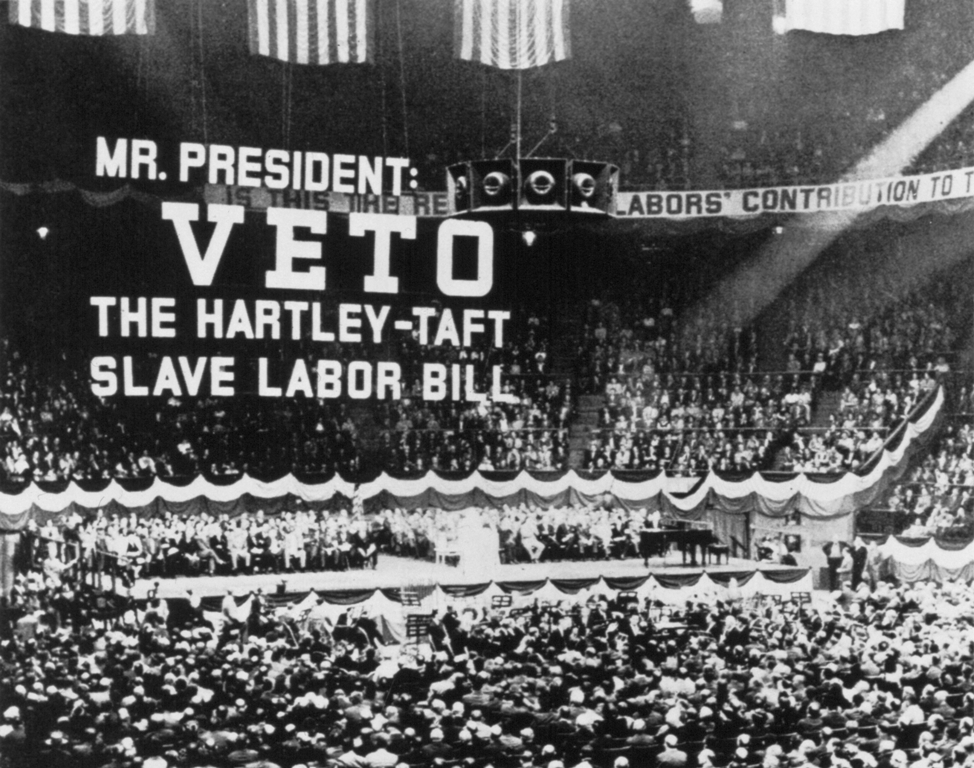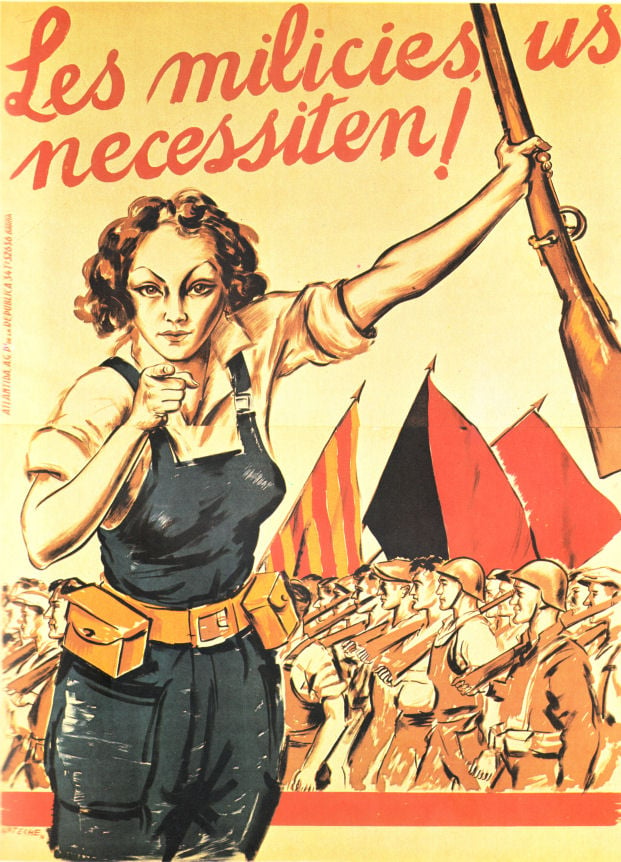Taft-Hartley Act (1947)
Mon Jun 23, 1947

Image: A massive 1947 union rally in Madison Square Garden. A large sign reads “MR PRESIDENT: VETO THE HARTLEY-TAFT SLAVE-LABOR BILL”
On this day in 1947, the Taft-Hartley Act became U.S. law after a heavily bipartisan vote, greatly restricting the legal rights of organizing workers during an unprecedented wave of strikes after World War II.
The Labor Management Relations Act of 1947, better known as the Taft-Hartley Act, was enacted despite the veto of President Harry S. Truman, with many Democrats defecting from the party line to support the union-busting measure.
The Act was introduced in the aftermath of a major, unprecedented wave of strikes in the aftermath of World War II, from 1945-1946. Strikes were strongly repressed during World War II to not hamper the war effect. When the wartime restrictions ended, millions of workers across the country went on strike.
The Taft-Hartley Act prohibits unions from engaging in “unfair labor practices.” Among the practices prohibited by the act are jurisdictional strikes, wildcat strikes, solidarity or political strikes, secondary boycotts, secondary and mass picketing, closed shops, and monetary donations by unions to federal political campaigns. The Act also allowed states to pass right-to-work laws banning union shops.
A pamphlet supporting a third, progressive party, published in 1948, had this to say on the vote:
"Every scheme of the lobbyists to fleece the public became law in the 80th Congress. And every constructive proposal to benefit the common people gathered dust in committee pigeonholes. The bi-partisan bloc, the Republocratic cabal which ruled Congress and made a mockery of President Roosevelt’s economic bill of rights, also wrecked the Roosevelt foreign policy. A new foreign policy was developed. This policy was still gilded with the good words of democracy. But its Holy Grail was oil…
The Democratic administration carries the ball for Wall Street’s foreign policy. And the Republican party carries the ball for Wall Street’s domestic policy. Of course the roles are sometimes interchangeable…
On occasion President Truman still likes to lay an occasional verbal wreath on the grave of the New Deal. But the hard facts of roll call votes show that Democrats are voting more and more like Republicans. If the Republican Taft-Hartley bill became law over the President’s veto, it was because many of the Democrats allied themselves to the Republicans."
- Date: 1947-06-23
- Learn More: jacobinmag.com, www.counterpunch.org.
- Tags: #Labor.
- Source: www.apeoplescalendar.org
Reads like it was written today.


